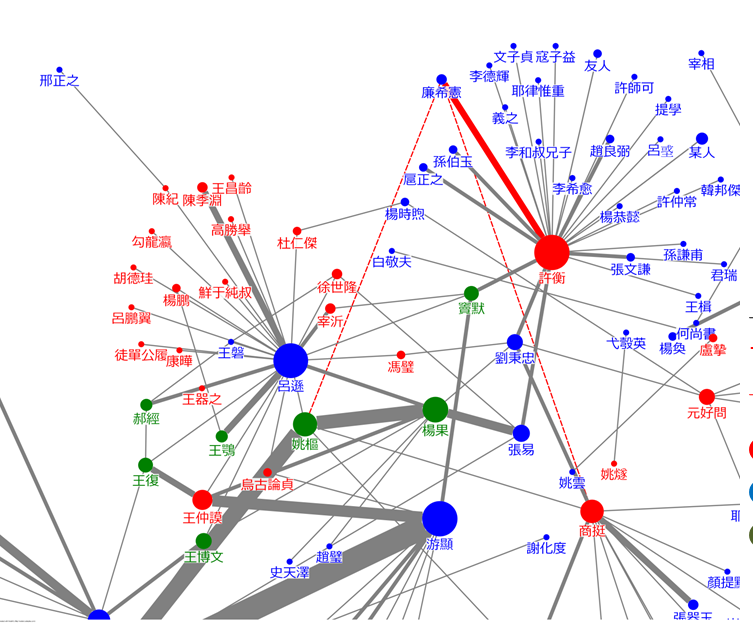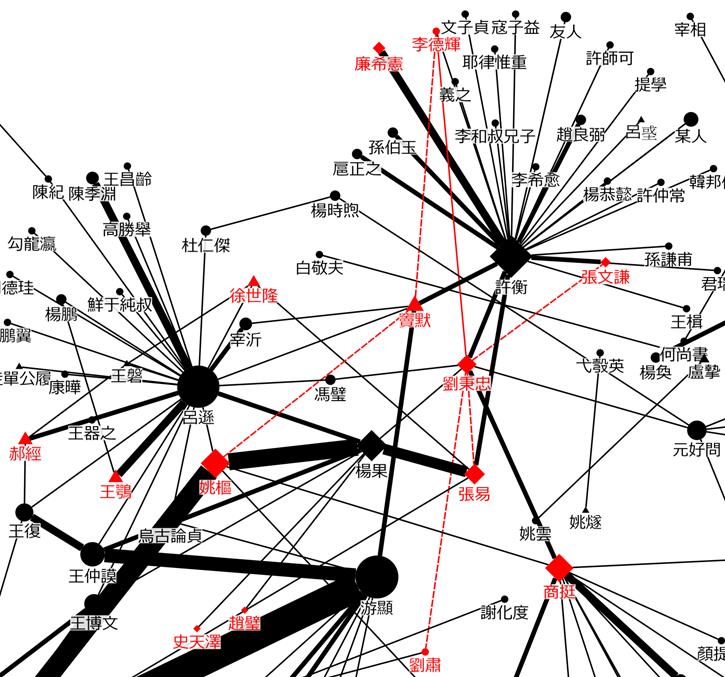View all Blog posts
Posted by: mchu 6 years, 10 months ago
Team members Hilde De Weerdt, Julius Morche and Chu Ming-kin participated in the Away Day of the “state and society network” of the Leiden University Institute for Areas Studies (LIAS) on November 21-22, 2014, to which the group had contributed the panel “Correspondence and networks”. Panellists were invited to present a specific source or source type from their current research and explain their treatment in current scholarship. By discussing and comparing sources and source types from different world historical contexts, the panel had two principal aims: first, to illuminate current challenges in the study of specific historical contexts relating to their respective source base; and, second, to explore the potential of comparative approaches on the basis of identifying commonalities between different types of sources and their historical origin. The panel featured five presentations covering the communication of literati elites in Jin-Yuan China; the communication of mercantile elites in late medieval and Renaissance Venice; the communication between the Sultan and the ruling elite in the seventeenth-century Ottoman Empire; Republican-era exchanges about labour recruitment between various government agencies and the Japanese management of the Fushun Coalmine (1910-1920s); and the examination essay in eighteenth-century China with specific respect to related social networks and aspects of political resistance.
Team member Chu Ming-kin reconstructed the epistolary network of Han literati in thirteenth-century north China through an examination of 200 letters in a letter collection known as Epistolary Writings of the Central Plain. He discussed how Qubilai’s system of patronage transformed parts of the epistolary network into an indigenous network of political elites. His presentation revealed that a Uyghur named Lian Xixian and a Buddhist-Daoist-Confucianist adviser Liu Bingzhong, two long-time retainers of Qubilai, were key brokers in the epistolary network. Both of them recommended Han literati to the Mongol prince through their social connections, which in turn facilitated the political ascendance of Han literati after Qubilai’s accession.
 Figure 1: The patronage network of Lian Xixian
Figure 1: The patronage network of Lian Xixian
 Figure 2: The patronage network of Liu Bingzhong
Figure 2: The patronage network of Liu Bingzhong
Julius’s presentation focused on Venetian fifteenth-century merchant letters, outlining how these documents of primarily economic content can be used as sources in prosopographical and genealogical research as well as in the study of the history of political communication and media. On the basis of a specific merchant letter taken from the private archive of a fifteenth-century Venetian patrician, he explained how its analysis can extract significant meta-data (e.g. names, dates, locations, relational links), which can be used for the tracing of prosopographical relations, the reconstructing of wider networks, and ultimately for embedding the document’s content in a wider context of societal dependencies. This is particularly significant for letters carrying political information, as the impact of political communication among patrician elites on the development of political institutions and structures of governance can thus be highlighted and concretely assessed.

Figure 4 Author

Figure 5 Recipient
Figure 6 Note recipient
With respect to the group’s research, the discussions that emerged from the panel were beneficial in highlighting the need for inclusive definitions of shared terminologies or concepts (such as ‘patronage’, ‘network’, ‘literati’ or ‘feudalism’) and their evaluation regarding their context-specific historical pertinence. The discussion also showed that meaningful comparisons across regions and periods can be attempted even if the comparability of sources is not necessarily given.
Share on Twitter Share
on Facebook
Share
on Facebook 
Recent blog posts
International Medieval Congress 2015 by mchu, July 30, 2015, 3:11 p.m.
Team members Hilde De Weerdt, Chu Mingkin and Julius Morche contributed to the panel “Historical Knowledge Networks in Global Perspective” ......read more
MARKUS update and new tools by hweerdt, March 12, 2015, 6:38 a.m.
The MARKUS tagging and reading platform has gone through a major update. New features are ......read more
Away day for the "State and society network" at LIAS by mchu, Dec. 5, 2014, 12:40 p.m.
Team members Hilde De Weerdt, Julius Morche and Chu Ming-kin participated in the Away Day of the “state and society ......read more
See all blog posts
 Recent Tweets
Recent Tweets
-
 @Hilde De Weerdt
1193 copy of al-Istakhrı's 10th C world #map, a maritime view of Afro-Eurasia as a world connected by seas--annotat… https://t.co/mZlZSIC0C41 year, 7 months ago
@Hilde De Weerdt
1193 copy of al-Istakhrı's 10th C world #map, a maritime view of Afro-Eurasia as a world connected by seas--annotat… https://t.co/mZlZSIC0C41 year, 7 months ago -
 @Monica H Green
A reminder that all the essays in the 2014 volume, *Pandemic Disease in the Medieval World: Rethinking the Black De… https://t.co/RntQ3Gw0On1 year, 7 months ago
@Monica H Green
A reminder that all the essays in the 2014 volume, *Pandemic Disease in the Medieval World: Rethinking the Black De… https://t.co/RntQ3Gw0On1 year, 7 months ago -
 @Journal for the History of
Knowledge
We are pleased to announce the theme of the new @jhokjournal special issue: 'Histories of Ignorance', with guest ed… https://t.co/5RRYoEsxoe1 year, 7 months ago
@Journal for the History of
Knowledge
We are pleased to announce the theme of the new @jhokjournal special issue: 'Histories of Ignorance', with guest ed… https://t.co/5RRYoEsxoe1 year, 7 months ago -
 @Hilde De Weerdt
CFP: Between Asia and Europe: Whither Comparative Cultural Studies? University of Ljubljana, May 2020 https://t.co/eyaWwNprEd1 year, 8 months ago
@Hilde De Weerdt
CFP: Between Asia and Europe: Whither Comparative Cultural Studies? University of Ljubljana, May 2020 https://t.co/eyaWwNprEd1 year, 8 months ago -
 @Craig Clunas 柯律格
Honoured to join the editorial board of "The Court Historian" as an index of the journal's wish to publish more stu… https://t.co/dgxW1hIYQ41 year, 8 months ago
@Craig Clunas 柯律格
Honoured to join the editorial board of "The Court Historian" as an index of the journal's wish to publish more stu… https://t.co/dgxW1hIYQ41 year, 8 months ago -
 @Global History of Empires
"And yet there is so much more to African history than stale narratives of slavery and colonialism." https://t.co/F8M0KTgIsL1 year, 8 months ago
@Global History of Empires
"And yet there is so much more to African history than stale narratives of slavery and colonialism." https://t.co/F8M0KTgIsL1 year, 8 months ago



Comments
New Comment